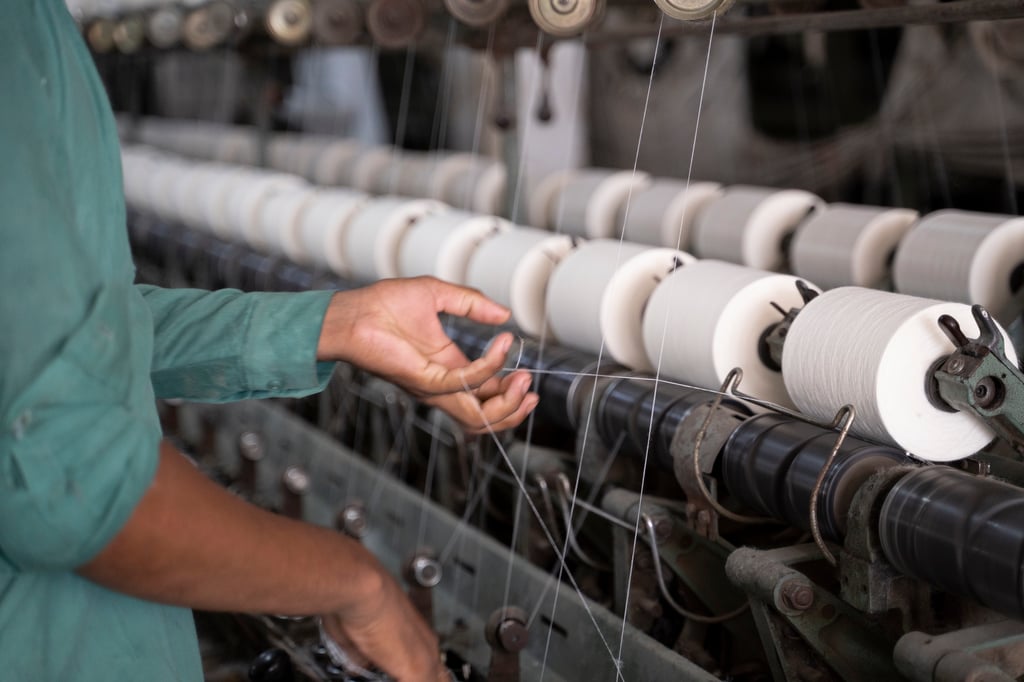
Manage business risk and drive impact
The most effective and resource-efficient responsible sourcing programmes do not take a “one-size-fits-all" approach, but instead view the supply chain through a risk-based lens.
Supply chain due diligence regulations – including the EU Corporate Sustainability Reporting Directive (CSRD), Corporate Sustainability Due Diligence Directive (CS3D), the U.S.A Uyghur Forced Labor Prevention Act (UFLPA), and the German Supply Chain Due Diligence Act (LkSG) – require companies to identify and manage priority risks in their supply chains. For more on these regulations see our latest report here
Companies have historically treated all suppliers similarly, prescribing “one-size-fits-all” interventions to monitor ESG compliance; audits, surveys and trainings for all suppliers or vendors. This approach results in risk blind-spots and inefficient use of resources.
Supplier risk assessments are a crucial step toward more strategically designed, data-informed and resource-efficient due diligence programs that meet legislative expectations.
Our segmentation analysis enables companies to have a clear understanding of ESG risks and then prioritise and implement the right supplier monitoring and capacity building tools and programmes. Our teams deliver pragmatic data informed results with very clear implementation guidance and support to do so. Bringing decades of experience we support clients to build resilient due diligence programmes.
Supplier ESG risk assessment and segmentation approach
LRQA’s segmentation approach overlays inherent sourcing risks and business leverage insights to determine which segments of the supply chain provide the greatest opportunity to manage business risk and drive impact.
We provide:
- Granular Risk Ratings by geography and product informed by on-the-ground audits to assist clients understand where their business may be at risk, based on suppliers’ locations, products manufactured, services delivered or material used.
- An Online Solution that allows clients to architect personalised segmentation via flexible criteria and filters.
- Advisory support to translate segmentation results into targeted recommendations for maximising supply chain sustainability amidst an evolving industry landscape.
![]()
Inputs
- Supplier locations.
- Product(s) sourced from each supplier.
- Annual spend or other indicator of relative importance of supplier to business.
- Supplier audit results.
- Various optional inputs to help inform understanding of supplier relationship and operations.
Process
Suppliers are evaluated based on a combination of geographical and product risk factors, how they manage that risk, and/or importance to the business / leverage over supplier activities.
LRQA’s proprietary risk data is derived from:
- Findings from tens of 1,000s of annual on-site audits
- Worker survey results
- AI- / WebCrawler-powered adverse media scans
- Civil society data (e.g., UN, ILO, OECD)
Outputs
Supplier prioritisation based on risk and importance to business / influence, housed in EiQ our supply chain due diligence platform.
The risk assessment results in a prioritised evaluation of suppliers that enables you to dedicate ESG risk mitigation resources to suppliers where you:
a) Are exposed to the highest risks of social or environmental issues; and,
b) Have the largest amount of influence over supplier behaviour and where the business impact would be the greatest.
Corporate Sustainability Reporting Directive (CSRD)
We provide comprehensive end-to-end support to help organisations meet the requirements of the Corporate Sustainability Reporting Directive (CSRD). Our end-to-end approach supports every stage of your CSRD journey—from understanding new requirements to delivering actionable insights and verified reporting, to closing your performance gaps. Our approach doesn’t only address compliance but also enhances strategic resilience and reputational value, enabling businesses to unlock sustainable growth. Visit our CSRD page to learn more about how we can empower you to meet evolving ESG reporting requirements.
Read
Find out more
Why partner with us?
We bring to every project our deep expertise in supply chain due diligence regulations, international best practice, a thorough understanding of risk exposure and risk management, and insights into industry practices and investor expectations.
Aligned with evolving requirements
We update our methodology on a regular basis to ensure alignment with legislation and industry standards.

Based on end-to-end expertise
Our evaluation is based on decades of experience not only assessing current states, but also designing and implementing long-term programmes.

We speak your language
We provide pragmatic, sensible, and resource-effective solutions and recommendations that can be implemented and scaled.

We are efficient and action orientated
We know what to look for, so it takes less time and effort for you and your teams to get the insight you need.

Related solutions
Explore our Consulting Services portfolio and find out how we can partner with you to solve ESG challenges








